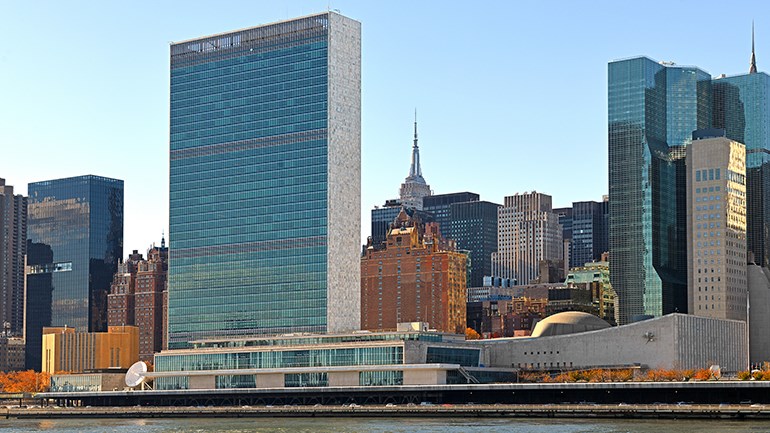Researchers to advise the UN Secretary-General

The United Nations Group of Ten High-level Representatives of Civil Society, Private Sector and Scientific Community to Promote Science, Technology and Innovation for thebSustainable Development Goals will head to New York in May.
Satellite images and other new innovative technologies can help improve and make agriculture more efficient in poorer countries, believes researcher Magnus Andersson, who is set to support the UN Secretary General in the work to achieve the global sustainability goals.
The Ministry of Foreign Affairs, through the Swedish UN representation in New York, nominated Andersson, an associate professor in economic geography at Malmö University. The advisory group includes representatives from academia as well as business and civil society.
... it is important to use new and innovative technology that can be used globally.
Magnus Andersson
Representatives from ten countries, including the Seychelles, Japan and India, will develop and propose innovative methods and new technologies that can support the UN in its work with the 17 global sustainability goals. Andersson is an expert in using satellite images to assess economic growth.
“You can use images in two ways: at night, you can measure where there is light and estimate growth through the amount of light in different places in the world; during the day, satellite images can show changes in the vegetation and thus growth in the agricultural sector,” says Andersson.
In many countries cultivation is not as efficient as desired because no land reforms have been implemented. Satellite images can help to see where land reforms can contribute to creating better conditions to farm efficiently and sustainably.
Now, many satellite images are freely available, which means that even poorer countries can participate in the studies. Andersson will describe the research and develop strategies and arguments for the use of satellite images.
“As a group, we must give advice on how we can agree on how to measure development within the global sustainability goals. There, it is important to use new and innovative technology that can be used globally.”
As a high school student in the 1990s, Andersson applied for an exchange year abroad. It happened to be Thailand and through the care of the host family, it led to him learning both Thai and Lao, the official language of Laos. After master's studies in transport systems in Lund and Thailand, and eventually doctoral studies, he became an advisor to the UN in the 2010s, when the work on developing the global goals began.
“Now we are a group with different skills and knowledge that will produce proposals for solutions to achieve the global goals. It is then up to the UN system and the member states to find the resources and implement them,” says Andersson.
The group of 10 will alternately meet online and physically. In May, Andersson will go to the United Nations in New York.
More about the group